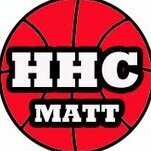Essential Skills of a Head Coach and Where to Find Them
-
Similar Content
-
- 93 replies
- 5,121 views
-
- 0 comments
- 53 views
-
- 0 replies
- 49 views
-
- 31 replies
- 1,257 views
-
- 1 comment
- 214 views
-
-
Recently Browsing 0 members
- No registered users viewing this page.





Recommended Posts
Join the conversation
You can post now and register later. If you have an account, sign in now to post with your account.